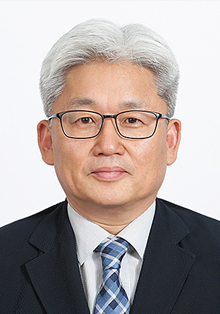José María Peredo
Professor of Communication and International Politics, European University
The methodology of performing a test and then confirming its invalidity with the result of the error can be considered scientifically valid. The error may be the consequence of an unforeseen case or an unforeseen hypothesis. But, in any case, such a result does not make it impossible to advance the scientific research in question, nor does it discredit the method used. Because the reformulation of a subsequent test can solve the error and enable a favourable result. In the realm of strategy, the trial-and-error methodology is more questionable. If the enemy’s positions cannot be reduced by an army’s offensive, strategic reformulation leading to further breakthrough attempts can lead to the weakening of the army and ultimately to its defeat. In international relations, we are living in a period in which successive tests of force do not pursue a scientific purpose such as the mere refutation of a hypothesis. Their aim is to prove a strategy: to expose the capabilities of the powers and their willingness to make their presence felt on the international political chessboard.
Russia has mobilised troops near the Ukrainian border in order to assess the effect of such a mobilisation on the security of its Atlantic allies and the countries concerned. But fundamentally it has done so to gauge its ability as a power to transcend the regional geopolitical environment and reassert its status as a global actor. In this constant foreign policy action to assert a role as a great power, Russia’s strategy uses the strength of its military to convey a polysemic message simultaneously to NATO, its commercial rivals, distant allies in other regions and China itself.
By moving the pieces alone, Russia is staging on the front pages of the media that it is able and willing to influence world politics, even though it has neither economic clout, nor adequate technology, nor an alternative political model capable of impacting the new international order in the process of being reshaped. But, convinced that maintaining the status quo as a revisionist power, recognised as such by its former G8 partners before its expulsion from the organisation in response to the armed action in Crimea, is a hypothesis validated by history, Russia conceives calculation and error as a strategy with sufficient guarantees to maintain its power.
Ukraine, for its part, maintains the uncertainty that allied Europe projects and promotes. Without a political and cultural underpinning to help it consolidate itself as a democracy that guarantees the rights, freedoms and equality of its citizens before the law, it observes with suspicion the inconsistent identities harboured in some neighbouring Polish, Hungarian or Slavic societies. An allied democratic Europe without firmness, weakened in its values by populisms on the right and left, without capacities or even clear common interests, cannot serve as a perch for a border coexistence that would give rise to any hope of stability and progress. Not of peace, which for Ukraine is an unlikely goal, but of credibility, which for Europe’s neighbours at the moment is an uncertain concept.
The risk of armed conflict exists because recent history has shown it in the clashes in Ukraine’s eastern provinces. But it is unlikely because the consequences for Russia have not been beneficial, but simply recurrent and disappointing. The more military force is applied, the lower Russia’s international credibility, and the lower its credibility, the lower its global political influence and visibility, while China’s influence grows.
The persistence in making mistakes does not seem to weaken Vladimir Putin’s will, perhaps because his foreign policy has not devised any other strategy. And perhaps also because Russia’s strategic history is stubborn in its favourable geopolitical assessment of space and time. But space and time in the 21st century are different from those of centuries past. When China was closed to the outside world. When Europe remained open to the outside. Or when the United States and Russia were the leaders of the world.
© All rights reserved






